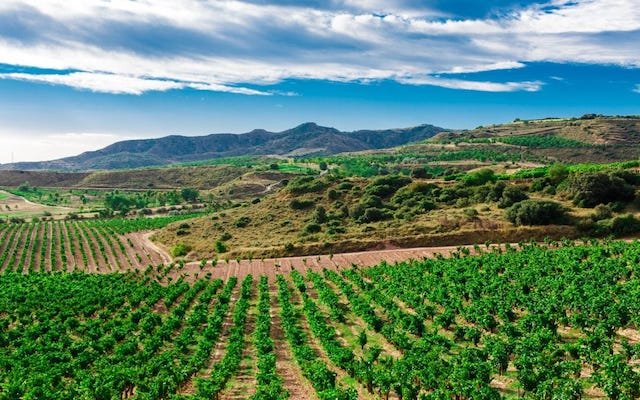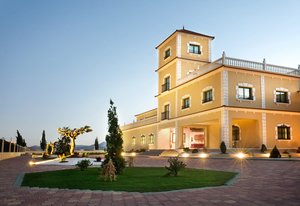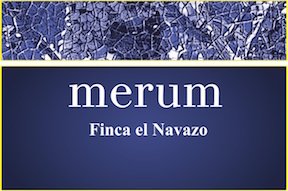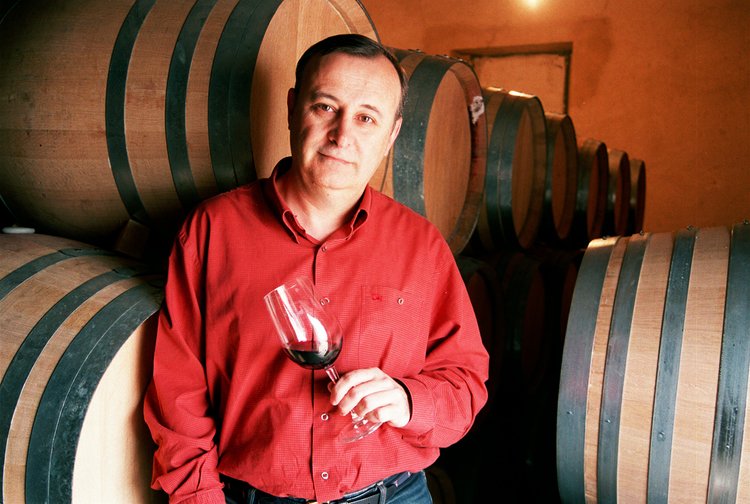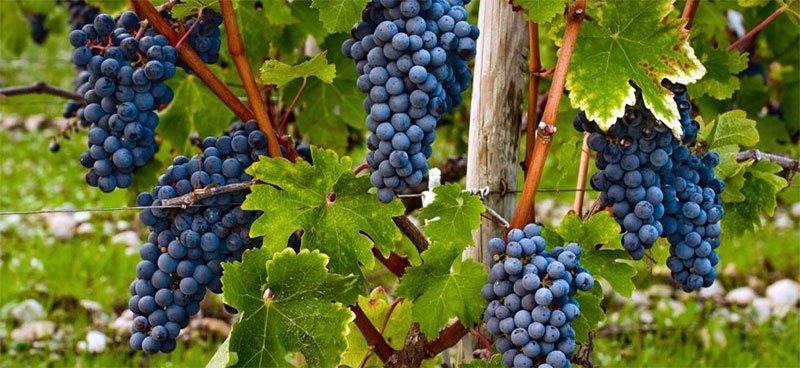Spain > Castilla - La Mancha > Jumilla > Bodegas Merum
Organic, Vegan
jumilla
Located in southeastern Spain straddling the border between Murcia and Castilla-La Mancha, Jumilla is a mountainous region of plateaus, hidden valleys and spiky dividing ranges. The climate is transitional-continental, with the Mediterranean moderating the otherwise pretty severe climate of hot dry summers and long, cold winters.
The region is the birthplace of the Monastrell (Mourvedre) grape, and has a viticultural history dating back some 5,000 years, one of the oldest in Europe. its approximately 50,000 acres constitute one of Spains oldest DOP regions, established in 1966.
The soils are dark, lime bearing and sometimes with a hard lime crust. In general, they are sandy, permeable and have good moisture retaining properties, which allows the vines to survive during periods of prolonged drought. These alkaline, low-organics soils also generally resist the establishment of phylloxera which in fact didn’t arrive in the area until 1989.
Because of this, 19th and early 20th-century French wine merchants sourced large amounts of wine from the area, which in turn caused growers to plant significant amounts of Bordeaux varietals. Some of these are incorporated into today’s DO regulations for permitted varieties.
The Wines
The white wines of Jumilla are bright and generally crisp, while the red wines of are dark, ripe and succulent. Permitted varieties for whites are: Airén, Macabeo, Chardonnay, Sauvignon blanc, Moscatel de Grano Menudo (aka Muscat a Petits Grains), Malvasia, and Pedro Ximénez. For red wines, permitted varieties are Monastrell (aka Mourvedre, Mataro), Cencibel (aka Tempranillo), Garnacha Tintorera, Garnacha, Syrah, Cabernet Sauvignon, Merlot, and Petit Verdot. Red wines dominate and of those the primary grape is Monastrell, which makes up some 85% of total plantings.
DO regulations apply to the Cosecha (85% from teh named vintage), Crianza (for the reds, 1 year age before release, at least 6mo in oak), Reserva (2 years age, at least 1 in oak) and Gran Reserva (min 4 years aging, at least 1 in oak and at least 3 in bottle) designations.
Merum
Merum, from the latin Merus (“pure”) is a Roman term for wine unmixed with water- that is pure, unadulterated. Noted winemaker Juan Jimenez produces Merum to represent the purity and intensity achievable with his beloved Monastrell grape, balanced and made more elegant by the addition of a touch each of Syrah and Petit Verdot.
Winemaker Juan Jimenez
Merum is hand harvested, fermented using only natural yeasts, and is bottled unfined and unfiltered after only a short time on the lees to enhance the freshness and bright fruit flavors of the wine.
“Deep ruby. Oak-spiced dark berries, licorice and a hint of musky herbs on the powerful nose. Sappy and focused on the palate, offering chewy blackberry and bitter cherry flavors that turn sweeter as the wines opens up. Shows good energy and lift on the smoke-accented, appealing sweet, persistent finish, which is given shape by dusty, slow-building tannins. 91pts.”
The estate’s mountain vineyards are dry farmed and rainfall is scarce, with an average of 10-12 inches a year. At more than 2,100 ft above the sea, the land is mostly calcareous with a semi-permeable layer of limestone on top that helps lock in moisture to help the vines withstand long periods of drought.
Monastrell is highly adapted to the conditions in Jumilla, as it needs a warm climate to ripen properly and tolerates the lack of rain very well. The many hours of sunlight and abrupt temperature changes, with hot summer days and cool nights plus intensely cold winters with temperatures often dropping below freezing at night, give the Monastrell grapes a high concentration, allowing us to make wines with great structure and aromatic complexity.
Monastrell vines are dry farmed and require large swaths of land, as it is a low-yield grape that is harvested by hand. The dry, arid climate of the region allow the grapes to be grown organically. Yields are very low.
Monastrell

